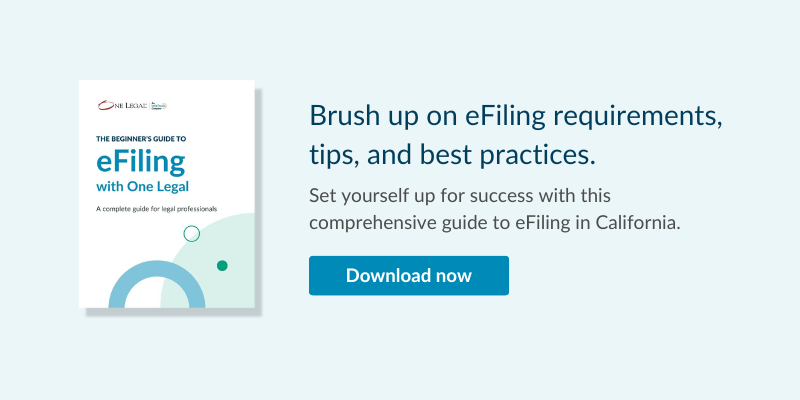Despite the benefits of a more tech-savvy firm, not everyone in the office may be gung-ho to learn the necessary skills and make the various changes.
A large law firm may ask the IT staff to champion the conversion to the new technology, but at a smaller law firm, it may be an office administrator or senior paralegal who must make these changes.
Wherever you work, these tips will help make the task of implementing new technology at your law firm easier for everyone.
Types of individuals at the law firm
Professor Everett Rogers is the author of the Diffusion of Innovation Theory, which established five adopter categories, for how ideas and products gain momentum and spread through societies. When it comes to technology adoptions, most of the users in a law firm will fall in the middle categories discussed below. Nonetheless, it’s essential to understand the characteristics of the entire staff.
Innovators
The people who want to be the very first to try the software are called Innovators. They’re interested in new ideas and willing to take risks. This typically represents a small percentage of the group, and very little—if anything—must be done to appeal to these people. So, your strategy here is to turn them loose!
Early Adopters
These are opinion leaders who like leadership roles and embrace opportunities. They’re already aware of the need to change and so are very comfortable adopting new ideas. Strategies to appeal to this group include how-to manuals, checklists, and cheat sheets on using the technology efficiently. These folks don’t need an argument to convince them to make the change.
Early Majority
More than third of a group will be classified as the Early Majority. They’re usually not leaders, but they’ll adopt new ideas before the average person. However, the folks in this group will typically need to see evidence that the innovation works before they’re willing to adopt it. The best strategies for the Early Majority include success stories and evidence of the innovation’s effectiveness.
Late Majority
Another third of any group is the Late Majority. These folks, as you might imagine, are skeptical of change and will only adopt after the technology’s been proven effective. Tips for bringing these people along include data on the number of other people who have tried the innovation in the law firm and have successfully adopted it.
Laggards
The final group is bound by tradition and very conservative. These are the Laggards. They’re extremely skeptical of change and are the hardest group to get on board. Strategies to appeal to this population include statistics, fear appeals, and perhaps some gentle pressure from other adopter groups.
When promoting the new technology in your firm, remember that individuals don’t always stay solidly in one group throughout all phases of their decision-making and adoption processes. One person may be a member of the Late Majority for one form of new legal tech, while leading the Innovators in another.
It will be critical to find each person’s pain points and to overcome obstacles by positioning the new technology as something better, building the processes into their work routines as soon as possible
Other strategies to ensure a smooth transition to new technology
Schedule the roll-out
Your firm may have a larger number of people in the Laggards or Late Majority categories. Because of this, you’ll need to build in sufficient training time to get these people up to speed and comfortable with the new tools.
Part of this timeline includes making the effort to offer employees the type of training they prefer. For some, it may be an online training session. For others, it might require more handholding and a personal touch.
Be realistic with your timeline based on the needs of your staff in adopting the technology. This patience also sends a message that the firm is investing time to learn the new system—that can go a long way towards calming fears over a switch to the unknown.
Nominate the firm’s “superuser”
Designate a specific person to “own” the new technology. This is your go-to guy or gal who welcomes questions and is acknowledged as the resource for the firm. This can be you as the champion who’s leading the initiative… or another tech-savvy employee. Your superuser should have direct access to the vendor’s service manager to help with any issues and to continue to gain insight and knowledge about the technology.
Offer customized training
In addition to tailored training for Rogers’ groups discussed above, you should also customize your training and resources for different departments. Every function of the law firm will have a different need to accomplish its tasks. Integrate the technology into their workflow, emphasizing the aspects that are most relevant to them.
Include everyone
As an initial matter, it’s best to include staff in the entire decision-making process. These are the folks who will be on the frontline using the service…they must be comfortable with the choices that are made to realize a successful transition. Their buy-in is important. Attorneys and staff will be more receptive to new technology if they participated in selecting the product.
Assess their needs and discover their likes and dislikes of your current system. Incorporate their feedback when choosing the technology. Also, be sure you’re communicating with your staff throughout the process and responding to feedback early on.
***
When a local court starts requiring eFiling or a new practice management tool is released that you need, there are many ways to ease the transition.
How has your firm embraced new technology? Share your stories in the comments.









